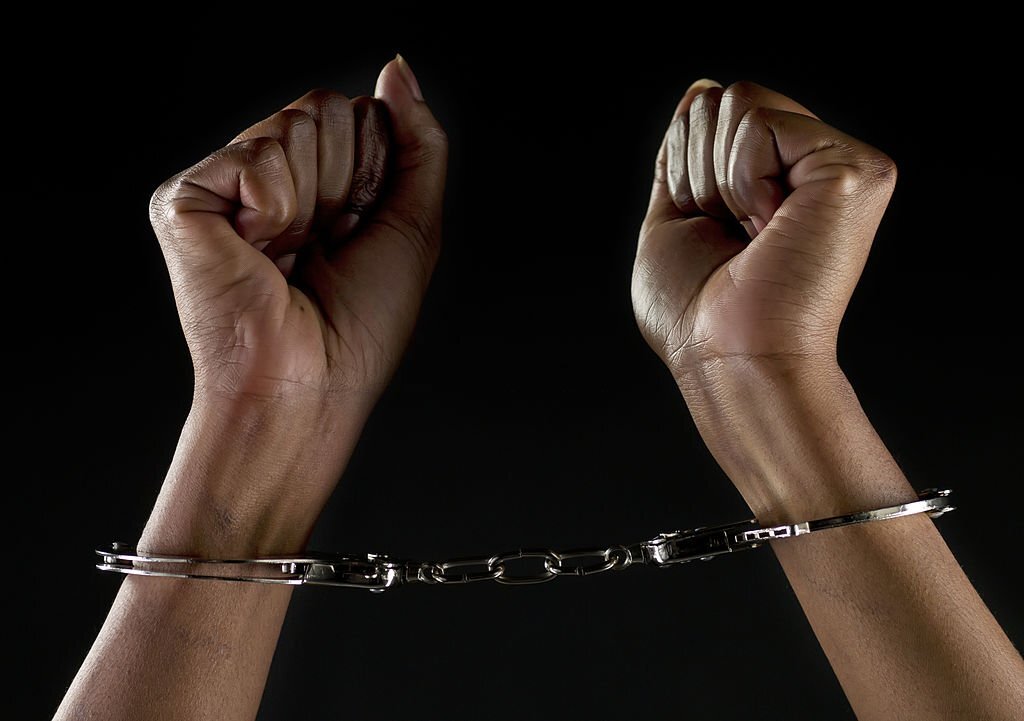The Women in Prison Support Initiative (WIPSI) recently hosted a thought-provoking webinar titled “Breaking the Cycle of Recidivism” on 30th August, 2024. This event brought together leading experts from the fields of law, academia, the judiciary, and corrections to discuss effective strategies for reducing recidivism and supporting the reintegration of former offenders into society.
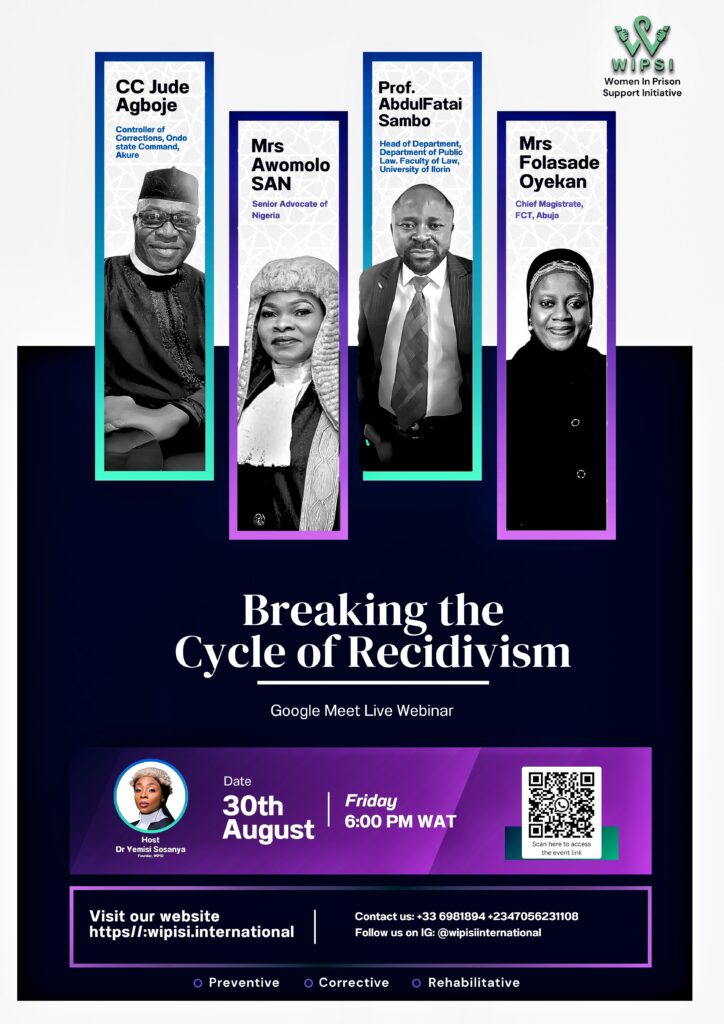
Understanding Recidivism: A Multi-Faceted Challenge
Recidivism—the tendency of previously incarcerated individuals to reoffend—is a complex issue influenced by various social, economic, and systemic factors. Our panel of distinguished speakers examined these challenges from their unique professional perspectives, offering actionable solutions that highlight the need for a holistic approach.
Expert Insights from Our Panelists
Prof. Abdulfatai Sambo – Head of Department, Department of Public Law, University of Ilorin
Prof. Sambo underscored the constitutional mandate for the reintegration of former inmates and the essential role that NGOs play in filling the gaps left by governmental shortcomings. He emphasized that education about criminal law should not be limited to law faculties but extended to all disciplines within universities to create a more legally informed society. His call for reforms in the administration of sentences reflects the urgent need to align legal practices with rehabilitative goals.
Key Quote:
“Reintegration of former inmates is enshrined in our constitution, yet the gaps in governmental action highlight the crucial role of NGOs in supporting this mandate.”
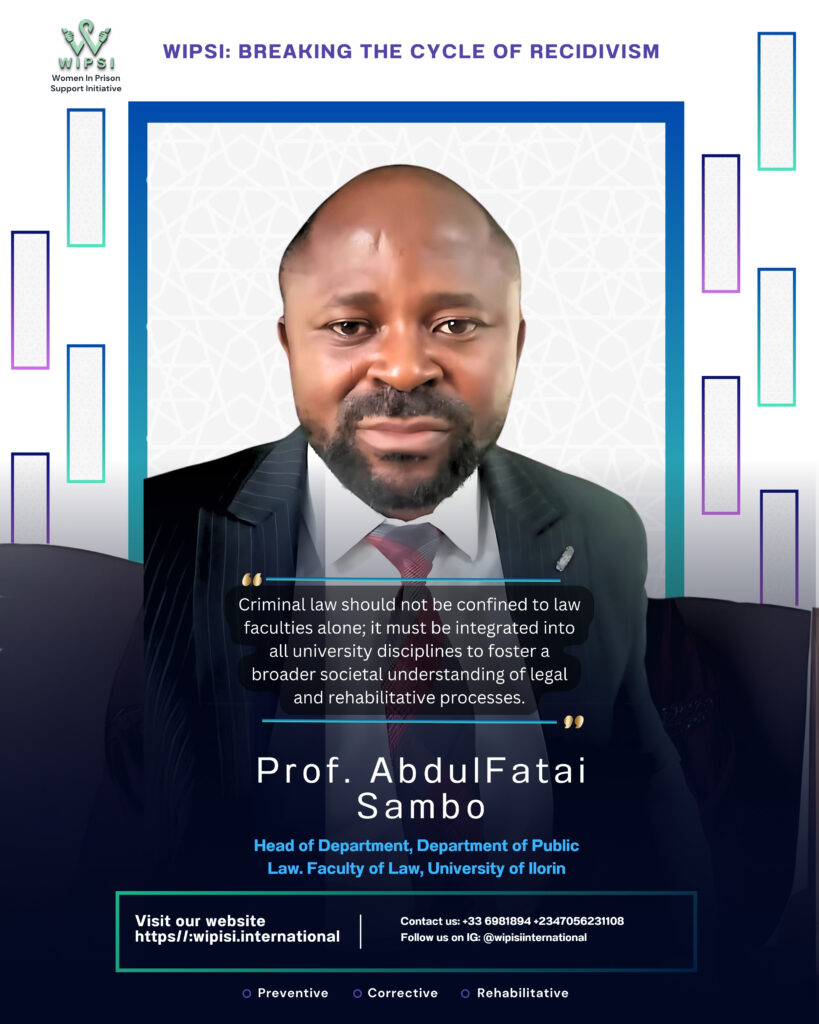

Mrs. Folasade Oyekan – Chief Magistrate, FCT, Abuja
Mrs. Oyekan focused on the importance of non-custodial sentences and restorative justice. She highlighted how prolonged stays in correctional centers often increase the probability of reoffending, advocating for community service as an alternative to incarceration for minor offenders. Her insights into judicial reforms stressed the need for a justice system that prioritizes rehabilitation over punishment.
Key Quote:
“The longer an offender stays in a correctional center, the higher their probability of reoffending. We need to focus on rehabilitation and restorative justice to break this cycle.”
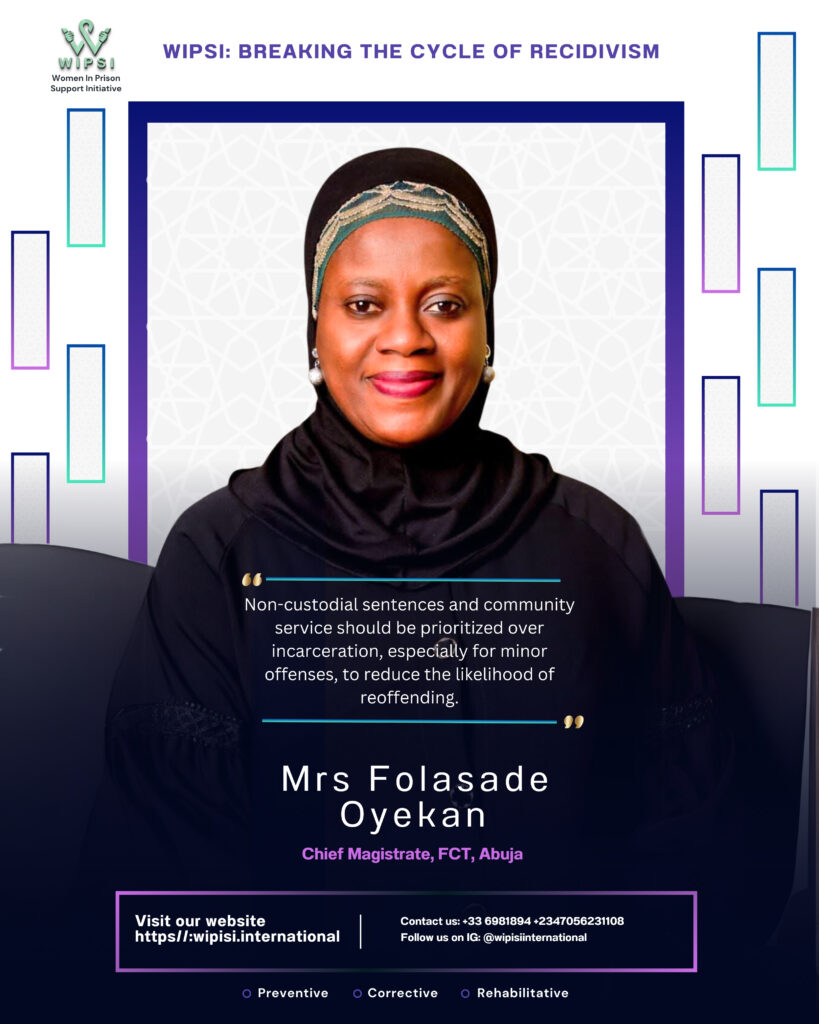
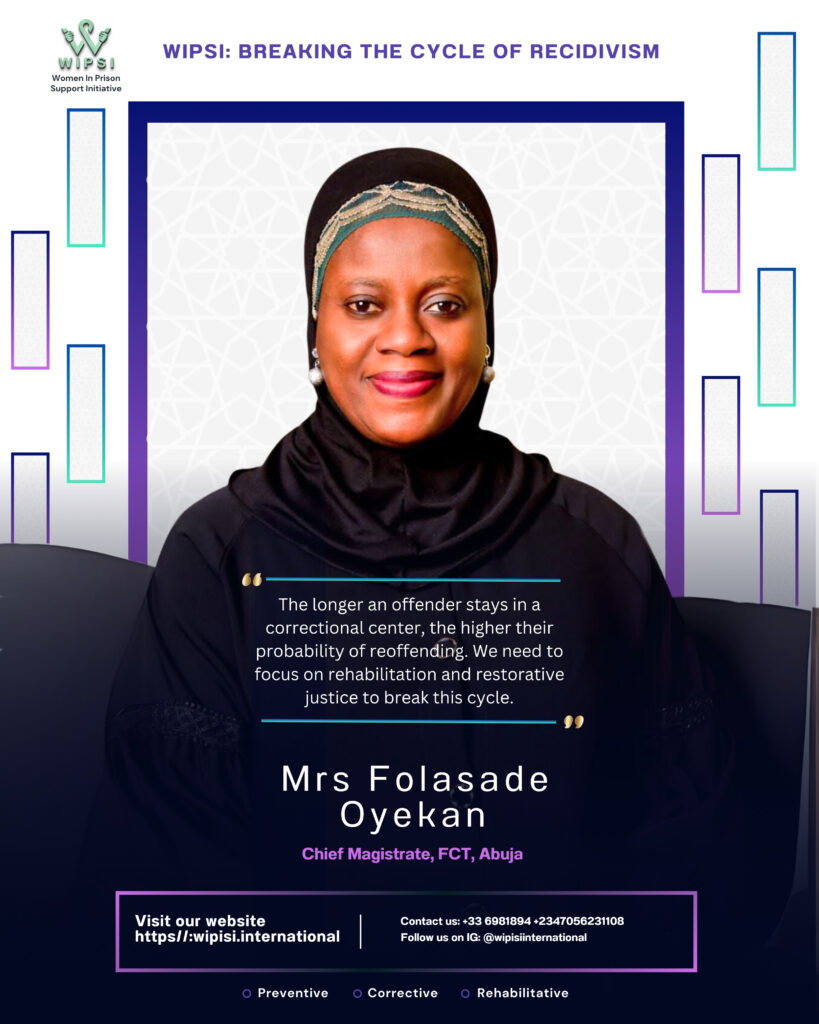
Mrs. Awomolo SAN – Senior Advocate of Nigeria
Mrs. Awomolo brought attention to the socio-economic factors contributing to recidivism, such as unequal social status, community rejection, and insufficient government programs for re-assimilation. She argued that these root causes must be addressed to reduce the cycle of reoffending, advocating for systemic changes that provide better support for former offenders.
Key Quote:
“Unequal social status, community rejection, and inadequate government programs often push individuals back into offending. We must tackle these root causes to reduce recidivism.”

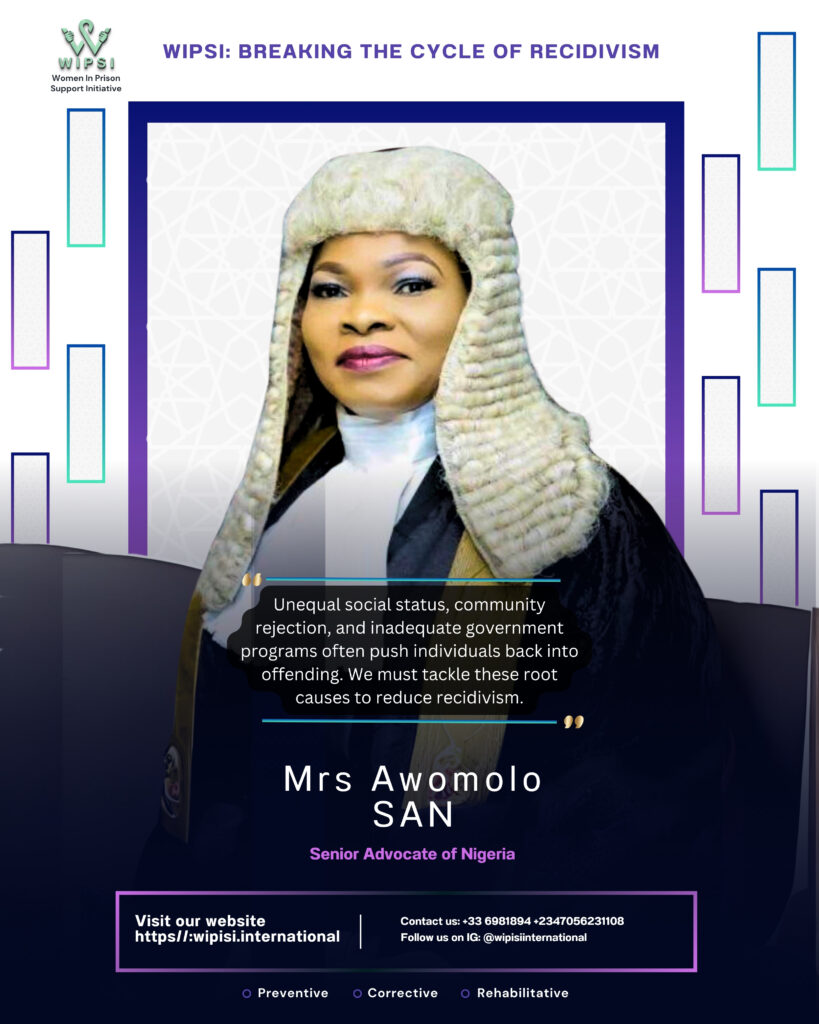
CC Jude Agboje – Controller of Corrections, Ondo State Command, Akure
CC Agboje highlighted the critical role of humane treatment within correctional facilities. He emphasized the importance of treating inmates with dignity, calling them by their real names, and providing humane conditions as essential steps in supporting successful reintegration. His perspective brought to light the often-overlooked aspect of societal responsibility in accepting and supporting ex-offenders.
Key Quote:
“Treating inmates with dignity, using their real names, and providing humane conditions are crucial steps in reducing recidivism and supporting their reintegration.”
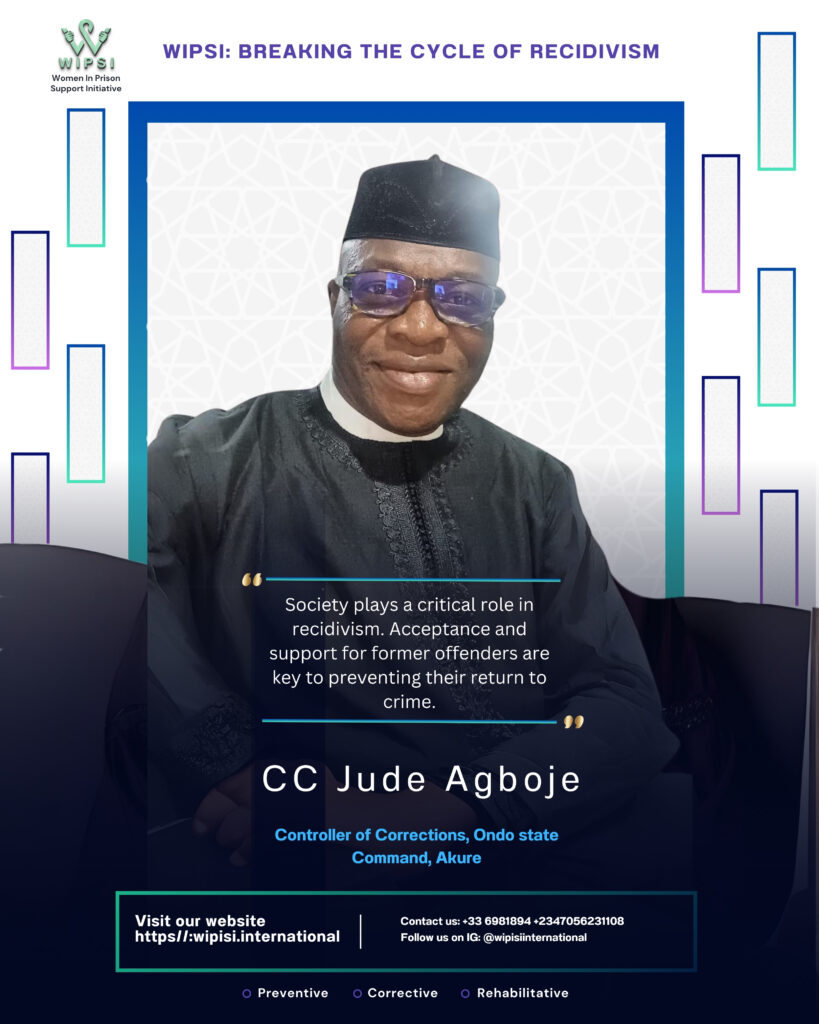
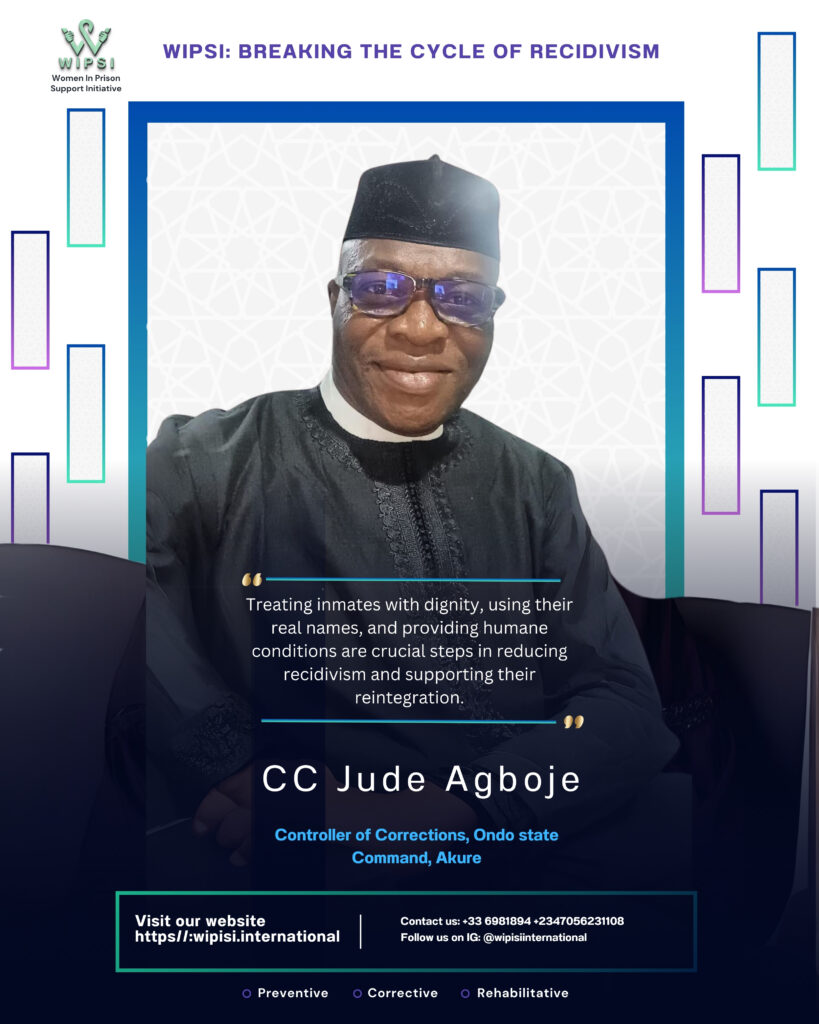
During the webinar, we introduced P.U.R.P.O.S.E as an acronym to encapsulate key strategies and solutions aimed at reducing recidivism. Each letter represents a vital component that, collectively, can drive meaningful change:
- P – Prevention and Preparation
Developing programs that prevent crime and prepare individuals for reintegration through education, skills training, and mentorship.
- U – Understanding and Support
Providing mental health counseling, substance abuse treatment, and emotional support to address underlying issues that contribute to criminal behavior.
- R – Rehabilitation and Reintegration
Offering rehabilitation programs within prisons and structured reintegration plans that support former offenders in adjusting back into society.
- P – Positive Pathways
Creating opportunities for positive engagement, such as job placements, apprenticeships, and community service programs that promote productive lives.
- O – Opportunities for Employment
Connecting individuals with job training, career counseling, and employment opportunities to help them build a sustainable future.
- S – Supportive Communities
Building networks that include families, communities, and support groups to provide a nurturing environment for reintegration.
- E – Education and Empowerment
Focusing on education programs and empowerment initiatives that encourage personal growth, self-efficacy, and informed decision-making.
Key Takeaways: What We Can Do to Break the Cycle
The panelists’ insights underscore the need for a collective, multi-disciplinary approach to reducing recidivism. Some actionable strategies highlighted during the discussion include:
- Promoting Legal Reforms: Advocating for adjustments in sentencing laws to better align with rehabilitative outcomes.
- Expanding Education: Integrating criminal law education across various disciplines to foster a legally informed society.
- Supporting Non-Custodial Sentences: Prioritizing community service and restorative justice as alternatives to incarceration.
- Addressing Socio-Economic Barriers: Providing job opportunities and support systems that address the underlying causes of reoffending.
- Fostering Humane Treatment in Corrections: Ensuring that inmates are treated with dignity and respect within correctional facilities.
The Way Forward: Collaborate and Contribute
The “Breaking the Cycle of Recidivism” webinar was not just a discussion but a call to action. At WIPSI, we are committed to driving these conversations forward and turning insights into tangible outcomes. We encourage everyone to be part of this movement—whether through advocacy, volunteering, or donations, your involvement makes a difference.
Join the Movement
Follow us on Instagram, Facebook and X to learn more about our initiatives, support our cause, and stay updated on future events and be part of the conversation as we work together to break the cycle of recidivism.
Let’s make a difference, one step at a time.


